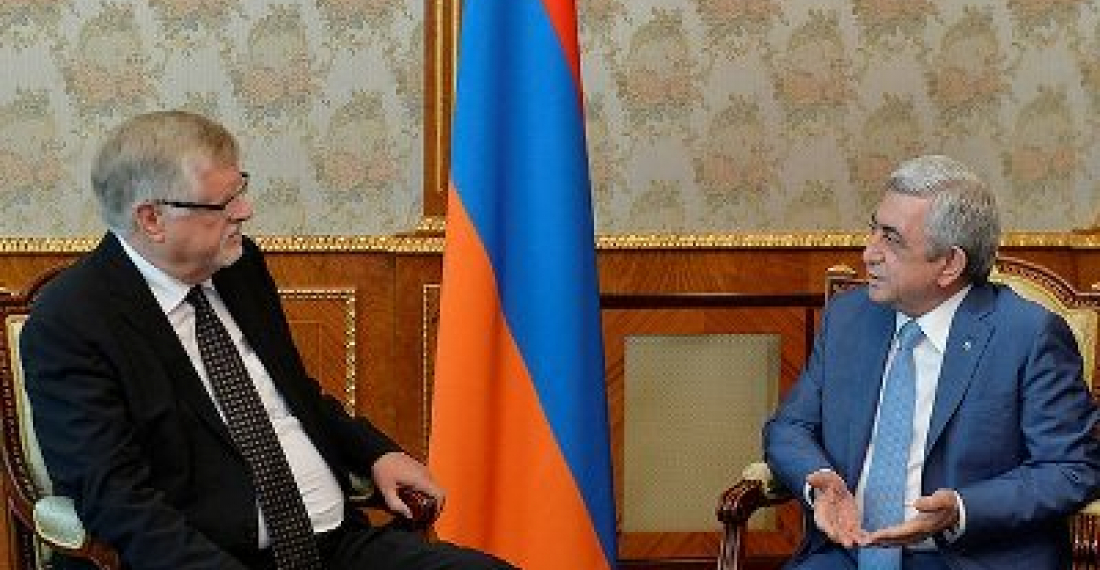The EU Special Representative for the South Caucasus and the Conflict in Georgia, Ambassador Herbert Salber, on Thursday met in Yerevan with the President of Armenia, Serrzh Sargsyan, and other Armenian officials to discuss the Karabakh conflict and other issues in Armenia-EU relations.
A statement published on the website of the Armenian President said that President Sargsyan "expressed concern about the fact that the Azerbaijani side continues its provocative policy, increasing the tension and ignoring the calls of the OSCE Minsk Group co-chairs".
The statement added that "the EU Special Representative, for his part, stressed that the EU continues to consider that there is no alternative to the peaceful settlement of the conflict, and that it is necessary to exert efforts towards avoiding the escalation and paving the way for the negotiations to resume".
This will be Ambassador Salber's last visit to Armenia in his capacity as EU Special Representative, since he will shortly take on a new appointment.
source: commonspace.eu with the press service of the president of Armenia
photo: Ambassador Salber with President Sarfsyan meeting in Yerevan on 6 July 2017.







